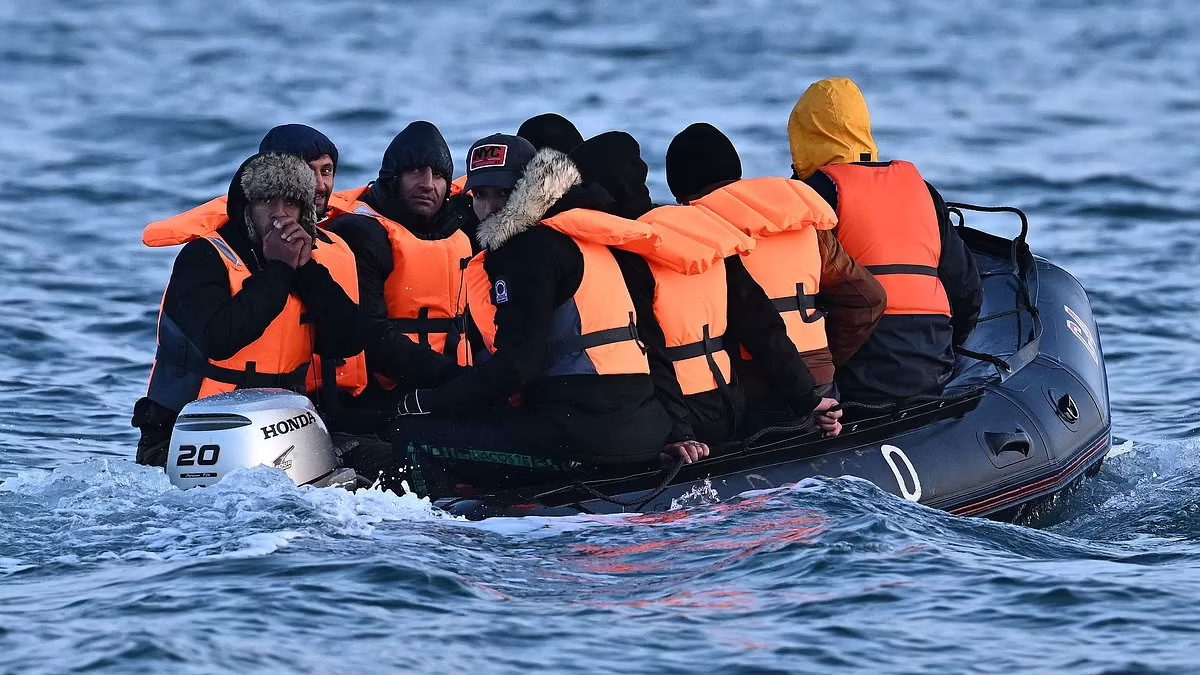An undercover investigation by the BBC has uncovered a troubling network of human smugglers operating in Essen, Germany, who are providing migrants with dangerous inflatable boats for crossing the English Channel. The investigation reveals a troubling connection between Germany and the booming smuggling trade, despite the UK government’s efforts to combat it.
REWRITTEN TEXT
In a hidden meeting in Essen, a western German city with a significant migrant population, undercover BBC reporters posing as Middle Eastern migrants were offered a “package” deal for an inflatable dinghy, complete with an outboard motor and life jackets, for €15,000 (£12,500). This revelation highlights a critical German link to the perilous smuggling operations across the English Channel, which have become increasingly lethal this year, with over 28,000 migrants attempting the journey in small, overcrowded boats.
The investigation comes amid renewed UK government pledges to dismantle smuggling gangs. However, according to Britain’s National Crime Agency, Germany has emerged as a vital location for the storage and distribution of boats and engines destined for illegal crossings.
During the covert operation, the undercover reporter, identified as “Hamza,” met with a smuggler known as Abu Sahar. Despite expressing a desire to avoid previous negative experiences with smugglers in Calais, Hamza sought Sahar’s assistance to manage his own crossing. Sahar provided assurances of availability and quality for the dinghy stored in a nearby warehouse.
Sahar explained that the boats were strategically kept in Essen to ensure quick access to Calais while avoiding more heavily policed areas. Although facilitating smuggling to a non-EU country like the UK is not illegal in Germany, there is increasing frustration among UK officials regarding Germany’s legal framework, which allows such activities to flourish.
At a cafe meeting, a figure referred to as “al-Khal,” who commands respect in the smuggling community, confirmed their operation’s scale and hinted at the presence of multiple warehouses in Essen to evade police detection. The smugglers suggested they could transport boats to Calais within hours, emphasizing the efficiency of their operation.
The BBC investigation uncovered that boats often originate from China, moving through Turkey before reaching Europe. As the pressure mounts from strict anti-smuggling controls in France, smugglers have increasingly turned to Germany, where they believe law enforcement is less engaged with the issue.
The smugglers discussed various options for Hamza, with the “package” deal including not just the boat but also life jackets and other equipment. They hinted at a “new crossing point,” suggesting they had found routes less monitored by authorities, further endangering migrants.
Despite the significant risks associated with such crossings, the smugglers downplayed the dangers, while independent experts condemned the vessels as “death traps.” Neil Dalton, Chair of the National Independent Lifeboat Association, emphasized the extreme dangers of overcrowding flimsy dinghies for such treacherous waters.
In response to the investigation, UK authorities are intensifying collaboration with Germany to tackle the smuggling networks. They aim to enhance enforcement strategies and address the evolving threats posed by these criminal organizations. While previous raids in Germany have resulted in arrests, the challenge remains daunting as smugglers adapt and continue to exploit legal loopholes.
The investigation sheds light on the grim reality faced by many desperate migrants, drawn into a perilous trade that exploits their hopes for a better life. Abandoned dinghies littering the northern French shores serve as grim reminders of the dangerous journey and the lives at stake in this ongoing crisis.










